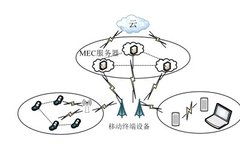Background of Edge Computing
In the era of the digital economy, especially with the rapid development of the Internet of Things, 80% of data and computing will occur at the edge. Edge computing, as the cornerstone of digital transformation, provides digital, networked, and intelligent services to users in various industries at the edge of the network, meeting the demands … Read more









